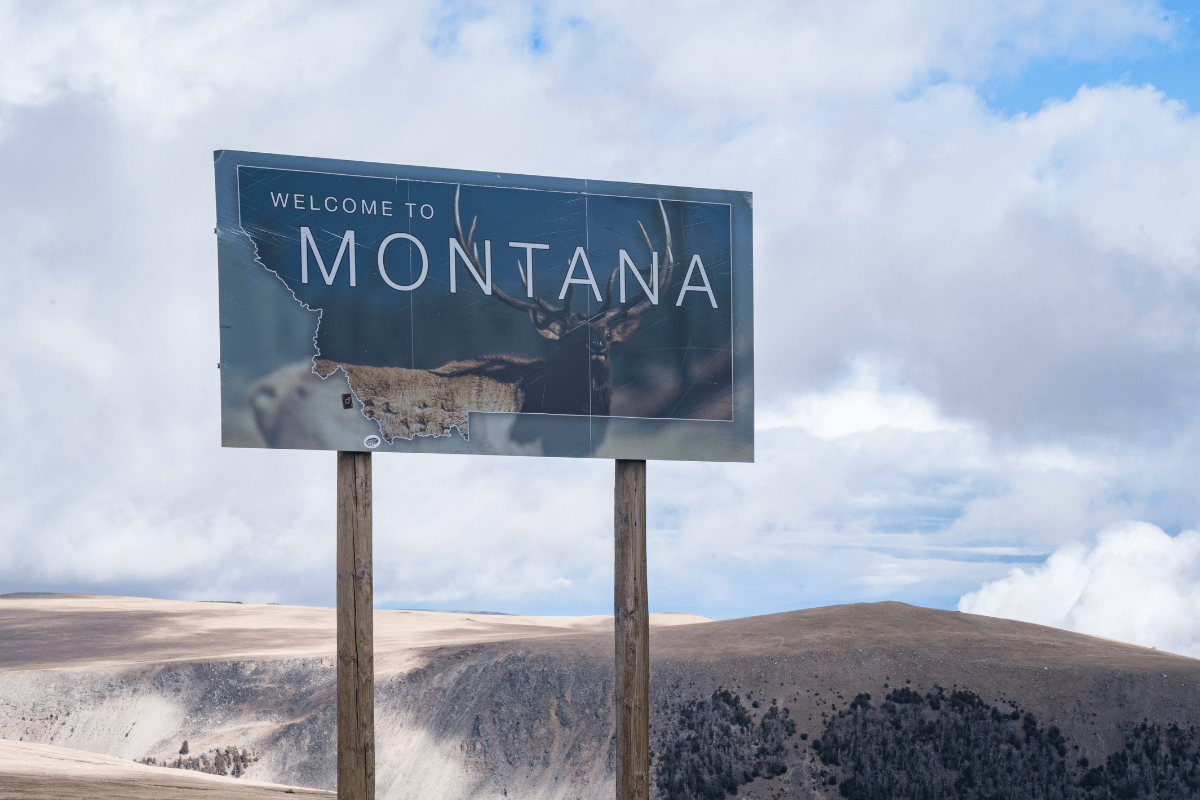Montana's legal code reads like a frontier fever dream in places, with laws banning fishing with lassos and requiring pool halls to keep their windows uncovered. While most of these regulations gather dust in the archives, they're still technically enforceable—creating a fascinating time capsule of Wild West problem-solving that somehow survived into the smartphone era.
The fishing laws that'll hook you
Let's start with my personal favorite absurdity: it's illegal to fish with a lasso in Montana. I'm not making this up.
According to Montana Code Annotated § 87-6-501(1)(a), you must fish "by hook and single line or single rod" only. No nets, no dynamite (obviously), and definitely no cowboy-style roping of trout. Break this law and you're looking at fines between $50 and $1,000, plus potentially six months in jail. Six months! For lassoing a fish!
The law effectively bans any creative fishing method beyond the traditional rod and reel setup. So if you were planning to revolutionize the fishing industry with your patented Fish Lasso 3000™, Montana is not your testing ground.
Your car can't wear winter jewelry
Here's where Montana's laws get even weirder, especially considering the state's notorious winters.
Ice picks and metal tires are fashion don'ts
Under MCA § 61-9-406, your vehicle tires cannot have any "block, stud, flange, cleat, spike, or other protuberance" that projects beyond the tire treads. This means those old-school ice picks people used to attach to wheels for winter traction? Completely illegal.
Even stranger, the same statute bans metal tires entirely. No vehicles with metal tires can operate on public roads, period. This might sound ridiculous until you realize these laws originated when Montana was transitioning from horse-drawn wagons to automobiles. The state's first paved highway, built between Butte and Anaconda in 1924, needed protection from both ice picks and metal wagon wheels that would tear up the newfangled asphalt.
City-specific strangeness that defies logic
Montana's cities each developed their own special brand of legal weirdness, and some of these municipal ordinances are genuinely baffling.
Billings really hates rats (as pets)
In Billings, Section 4-304 makes it illegal to sell, harbor, or give away rats as pets. The fine? Up to $500. The ordinance, enacted in 1990, sparked petition campaigns in 2020 from rat enthusiasts arguing for their right to keep domesticated rats.
The law includes exactly two exceptions:
- Feeding reptiles or birds of prey
- Scientific research purposes
That's it. Want a pet rat because they're intelligent, affectionate, and trainable? Too bad. Move to literally any other Montana city.
Helena's war on nighttime frisbee golf
Helena took a brave stance against the scourge of after-dark frisbee golf—excuse me, "folfing"—with Section 5-13-2. The ordinance, passed in 1997, prohibits folfing within the business improvement district unless you're on a designated course.
I spent way too long trying to figure out what prompted this law. Was there a folfing crime wave? Were business owners complaining about rogue frisbees? The legal experts I found discussing this law seemed just as puzzled as I am.
Kalispell demands transparent pool halls
Kalispell's Section 19-30 requires pool halls to maintain visibility from the street. No screens, blinds, or curtains can obscure the view of pool tables, billiard tables, or bagatelle tables (had to Google that one—it's like a primitive pinball machine).
This frontier-era transparency law almost certainly aimed to let authorities monitor gambling activities from outside. Because nothing says "legitimate business" like making sure the cops can see your every move through the window.
More municipal madness
Billings doubles down on the weird with Section 3-301, requiring musicians to stay on stage while performing in establishments serving alcohol. No wandering into the crowd with your guitar, no dramatic exits mid-song. You're legally bound to that stage until your set ends.
Helena also prohibits placing sprinklers or hoses that spray water onto sidewalks "to the annoyance of passerby" under Section 5-9-2. Because apparently this was enough of a problem to require legislation.
Why these laws exist (spoiler: blame the frontier)
Understanding Montana's bizarre legal landscape requires a trip back to the Wild West—and I mean the actual Wild West, not the Hollywood version.
The mining boom created instant chaos
When gold discoveries at Grasshopper Creek and Alder Gulch in the 1860s attracted thousands of fortune-seekers, mining camps grew from nothing to cities of 10,000+ people practically overnight. According to historical accounts, these places had zero law enforcement infrastructure.
Granville Stuart described the atmosphere: it "became the custom to go armed all the time." The territorial legislature's very first act in 1864? Banning concealed weapons within town limits. When daily shootings are your baseline, you start with gun control and work backward from there.
Vigilantes shaped the legal system
Between 1863 and 1870, the Montana Vigilantes executed 23 alleged criminals, including Sheriff Henry Plummer himself. This wasn't some fringe movement—it was the de facto justice system before formal courts existed.
The vigilante era directly influenced laws about "brandishing" weapons and establishing formal legal procedures. When your recent history includes citizens hanging their own sheriff, you tend to write very specific laws about proper legal authority.
Cattle, railroads, and progress
The cattle boom brought new challenges. By 1885, 500,000 cattle roamed Montana ranges. Then the catastrophic winter of 1886-87 killed half of them, fundamentally changing ranching practices and spawning laws about:
- Animal welfare requirements
- Range management rules
- Brand registration systems
- Livestock inspection protocols
When the railroad arrived in 1881, it created a technological collision between horses, wagons, trains, and eventually cars. Those weird vehicle attachment laws? They're trying to regulate four different transportation eras simultaneously.
Prohibition's lasting legal hangover
Montana holds the distinction of being both the first state to adopt prohibition (1918) and the first to repeal it (1926). This eight-year experiment created a patchwork of local alcohol regulations that still influence laws today.
The Anaconda Copper Company lobbied hard for repeal—they needed to attract workers, and apparently "Come to Montana, where alcohol is illegal!" wasn't a winning recruitment pitch. The resulting compromise created our current maze of local liquor laws, including Billings' requirement that bands stay on stage in bars.
The great Montana legal cleanup
Montana isn't just letting these laws sit forever. There's actually a systematic effort to clear out the cobwebs.
Red tape relief to the rescue
Lieutenant Governor Kristen Juras leads the Red Tape Relief Initiative, making outdated law revision "a focal point" of recent legislative sessions. She shared this gem: "To sell fruit door to door, which my boys did in high school for their band, they didn't realize they had to have a huckster's license."
The numbers are impressive:
- 2023 session: 190 bills introduced
- Over 90% signed into law
- 2025 session: ~123 more planned
- Each state agency reviewing their statutes
Recent wins in the war on weird
The most entertaining recent repeal involved House Bill 247, which eliminated an 1895 law requiring duel winners to support their opponent's family. Representative Braxton Mitchell explained: "This wasn't a bill I thought I'd be bringing this session."
The bill passed 84-16, which means 16 legislators voted to keep the dueling law. I have questions for those 16 people.
Myths vs. reality
Before you share that Facebook post about Montana's "crazy laws," know that many popular claims are completely fake. My research found zero evidence for:
- Laws about shooting animals from vehicles "except whales"
- Requirements for sheep chaperones in truck cabs
- The infamous "7 Indians on property" law
- Most other viral "weird law" claims
Legal experts consistently debunk these myths, but they spread faster than actual facts because they're more entertaining than "you can't put ice picks on your tires."
What this means for regular humans
Here's the practical reality: nobody's getting arrested for folfing after dark or keeping pet rats. Montana police have actual crimes to solve. They're focused on:
- Violent crime prevention
- Drug enforcement
- Wildlife protection (the serious kind)
- Traffic safety
- Current regulatory compliance
These old laws persist because removing them takes legislative time that could be spent on contemporary issues. Since they're harmless and unenforced, they become legal fossils—interesting to study but irrelevant to daily life.
Diving deeper into Montana law
If this article sparked your interest in Montana's legal system, here are some resources for further exploration:
The Montana Legislature website provides access to current bills and legislative updates. You can browse the complete Montana Code Annotated to find more legal oddities (or just useful information).
For local laws, check with the Montana Cities & Towns Association or individual city websites. Each municipality maintains its own code database, though the user-friendliness varies wildly.
The bottom line on Big Sky bizarre
Montana's unusual laws tell the story of a state that transformed from lawless frontier to modern democracy in just 160 years. Each weird statute represents real people trying to solve unprecedented problems with the tools available at the time.
Sure, banning lasso fishing seems ridiculous now. But somewhere in Montana's past, somebody probably tried it, caused problems, and prompted a legislator to think, "We need a law about this." That's how legal codes develop—one weird situation at a time.
These laws remind us that our current "normal" will probably seem equally bizarre to future generations. Maybe someday our great-grandchildren will laugh at laws requiring drivers to use hands on steering wheels or banning phones in movie theaters. "Can you believe they needed laws for that?" they'll say, before passing new regulations for whatever chaos their era brings.
Until then, Montana's legal oddities remain frozen in statutory amber—technically valid, practically irrelevant, and endlessly entertaining. Just remember to leave your fish lasso at home and keep your pet rats in Wyoming. You know, to be safe.





